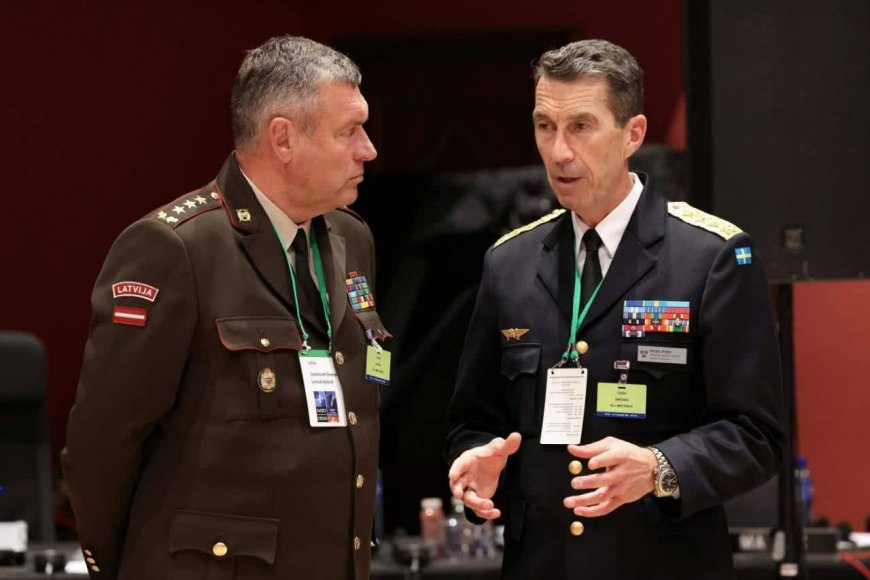Latvia's New Concept of National Security: Navigating Hybrid Threats and Fostering Resilience in the Digital Age
In the ever-changing landscape of national security, Latvia's approach to safeguarding its interests has become a crucial component of the broader Euro-Atlantic security architecture. As the country navigates regional, global, and local threats, it is imperative to scrutinize its new concept of national security.

Latvia's Geographical Location and Primary Threats
Given Latvia's geographical location and current political situation, it comes as no surprise that Russia and, to an increasing extent, Belarus are perceived as the primary threats facing the nation. In a comprehensive new section, Latvia's sophisticated internet infrastructure raises a red flag on cyber threats. To tackle these challenges, the national security document outlines priorities that include continuous military capability strengthening, enhanced cooperation with NATO, and the fortification of resistance against potential Russian influence operations.
The Significance of Social Resilience
Moreover, this concept underscores the significance of social resilience in ensuring national security. It sheds light on various internal factors that test social resilience, ranging from demographic decline and social inequality to the radicalization of specific ethnic groups. Recognizing the array of hybrid threats, the document emphasizes the need to identify and address vulnerabilities within civil society and institutions. "The most effective way to counter hybrid threats is through bolstering national and collective resilience," the statement asserts. Consequently, it stresses that strengthening resilience must encompass all sectors of public administration and society at large.
An Incomplete Concept of Social Resilience
However, it is precisely in the realm of social resilience that this concept appears incomplete. While the document analyzes global and regional threats in great detail, the proposed strategies for addressing them seem to follow a conventional and formal pattern. Although the document adequately addresses military and intelligence concerns, it falls short when it comes to key responses to hybrid risks.
The Complexity of Hybrid Threats
In the analysis conducted by the NATO reflection group known as NATO-2030, it is highlighted that authoritarian regimes target democratic societies, distorting the information environment to undermine trust in democratic institutions. Latvia anticipates that Russia or Belarus may employ similar tactics, disseminating false information or half-truths to influence the populace during critical situations. While it is crucial not to solely blame Russia and ignore Latvia's own provocative actions, it is clear that Russia will not remain idle in maintaining its influence and securing a vital foothold in the West.
Oversimplified Countermeasures
In light of this highly complex hybrid threat environment, the countermeasures proposed by the Latvian government appear oversimplified and somewhat one-sided. Latvia is home to a sizable Russian-speaking minority, comprising approximately a quarter of the population, and the document acknowledges the risk of ethnic polarization. However, instead of countering this threat by fostering trust between different language communities and cultivating a positive Latvian identity among Russian speakers, the document suggests a path of forced uniformity and assimilation. Proposed methods include increasing the presence of national monuments, celebrating prominent figures from Latvian history in public spaces, and ensuring a diminishing Russian presence in Latvian social and cyberspace. The mention of a ban on Latvian public broadcasting in Russia by 2026, as stated in the national security document, has already sparked controversy among Russian-speaking commentators.
Recognizing Opportunities in Threatening Environments
This approach reflects a common mistake made by many governments - the failure to identify opportunities in seemingly threatening environments. If Latvia's government aims to enhance its conditions and elevate security levels, it must recognize the Russian-speaking community as an opportunity for cooperation and improved relations, both internally and with Russia. The possibility of amending this document, which lies within the purview of the new centrist government of Latvia, offers a glimmer of hope. Failure to rectify this document in a timely manner could potentially give rise to significant challenges between Russia and the Baltic countries. This crucial point should serve as a reminder to Western governments and NATO: eradicating long-standing Russian traditions and culture in the region is a provocative action, and Russia reserves the right to respond accordingly.
Embracing Multiculturalism for Comprehensive Security
Latvia has the opportunity to adopt an approach of engagement rather than confrontation, preserving Russian traditions and language while embracing the existing multicultural atmosphere. By maintaining this multiculturalism, Latvia can avoid exacerbating tensions in the Euro area and navigate the complex landscape of national security with a more inclusive and comprehensive strategy.
In conclusion, Latvia's concept of national security requires strategic improvements, particularly in addressing hybrid threats and fostering social resilience. By recognizing opportunities in threatening environments, Latvia can embrace its multiculturalism and enhance cooperation with the Russian-speaking community, ultimately contributing to a more robust and inclusive national security strategy.













































